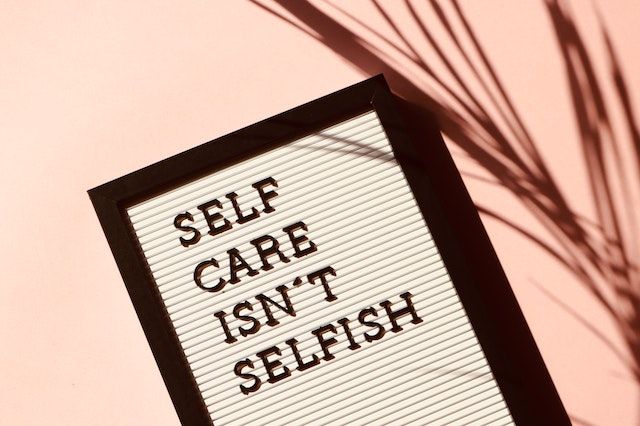Boundaries are an essential component of our lives. We set these boundaries to safeguard our well-being and preserve healthy relationships. There are no established guidelines for setting boundaries, and you can set boundaries in any area of your life. Furthermore, boundaries can take many forms, such as learning to say no more frequently or refraining from taking on additional tasks to preserve a healthy work-life balance. However, setting limits can be challenging, and knowing where to begin can be even more challenging. Therefore, discover why boundaries are crucial for your mental health and how to establish and uphold them with our help. Keep reading and learn how to set boundaries and protect your mental health.
Why is it important to set boundaries?
Boundaries are clearly defined guidelines or restrictions that people set up to ensure their well-being and safety around other people. To help others act around us in a way that makes us feel comfortable, we create and communicate our boundaries. You can set boundaries regarding how much alone time you need in your relationship, how to handle harsh comments made by family members about each other, or how to ensure your physical safety when you are together. By fostering an atmosphere where each person can be themselves and have their needs fulfilled, they can be a valuable tool for enhancing our sense of security in our surroundings and with other people.
In addition, boundaries are important for both you and those around you. People should adapt their conduct when you are clear about your boundaries, recognize your limits, and let them know what you are and aren't OK with.
At the same time, not setting boundaries can result in mental health issues. If others cross the lines you didn't realize you needed, it might make you feel unhappy, anxious, or depressed. As a result, as soon as you feel you need to set boundaries to protect yourself, do so and communicate your boundaries to those around you. Moreover, remember that you may not want people who don’t understand and respect your boundaries in your life. Professionals at Archstone Behavioral Health advise, as addiction recovery experts, that you must delimitate yourself from those who don’t understand your needs as they become a barrier between you and your goals.
Know your needs
You must decide what boundaries you want to set before you can begin to apply them. Therefore, you must first identify your needs to do it. So think of what it means, for instance, if you want to establish boundaries at work so that you don't work extra hours or on weekends. How can you ensure that your work stays within the nine-to-five limit? Does that mean you need to speak with a manager? Does this entail disabling notifications on your phone during specific times of the day? First, establish these criteria, then you can proceed to set the boundaries and protect your mental health.
Know your limits
It's time to determine your limitations once you have identified your needs. It's not only a question of how far you can go before you lose your cool. It involves reaching one's physical, mental, and emotional limits. For instance, you might establish different borders between close relatives, relationship partners, work colleagues, and acquaintances.
If it's hard to understand, consider making a chart and marking where your limits are for various people or groups. By imagining your boundaries, you can create precise and valid limits.
Focus on yourself
Enable yourself to put yourself first and prioritize your comfort and safety. We frequently overstep our boundaries or put off establishing and enforcing them out of guilt or concern for the reaction we might receive. In truth, boundaries support self-respect, self-love, and good relationships with others. So don’t be scared to focus on yourself for the first time in your life. It is one of the best things you can do for your mental health.
Learn to say no
Learning to say no is a crucial component of learning how to set boundaries and protect your mental health. Practicing saying no with close friends or family is one method for cultivating the habit. Therefore, encourage them to push you into circumstances where you need to say no and let them know you're working on learning to say no more often. You'll probably feel more at ease rejecting them than you would with coworkers or people with whom you genuinely need to establish boundaries in your personal life. The individuals you practice with can also encourage and support you.
Take care of yourself
Positive thinking, overall health, and well-being depend on self-care. When you're not feeling well, creating and enforcing boundaries might be difficult because you won't know what you can and can't tolerate. When you take care of yourself, you'll feel more motivated to defend yourself because you'll understand your emotions' importance.
Moreover, don't hesitate to ask for help if you need it. Taking care of yourself includes seeking help. You can do whatever it takes to acquire the help you need, including talking to friends and family, seeking counseling or therapy, or attending support or religious groups.
Be tolerant
New habits take time to develop when you ask people close to you to modify how they communicate with you. As a result, they will occasionally make a mistake and unintentionally break your boundaries. As a result, your efforts to safeguard your mental health will largely depend on how you respond to these situations. The other person will become defensive if you react with rudeness or anger and may be less inclined to accept your boundaries in the future. Also, once you regain control, you'll probably feel bad about your reaction.
Therefore, the best reaction in these situations is to be as forgiving, tolerant, and compassionate as possible. The other person will listen to you and take you more seriously if you explain why they must respect your boundaries. Also, they will try to pay more attention the next time. With this strategy, you'll also be safeguarding your interests since you'll handle potentially awkward circumstances with maturity and wisdom that support and maintain good mental health.
Final thoughts
At first, it might seem challenging to learn how to set boundaries and protect your mental health. However, it will get easier and easier once you start practicing this habit. Therefore, ensure you use the advice this article shares and practice, practice, practice!





















